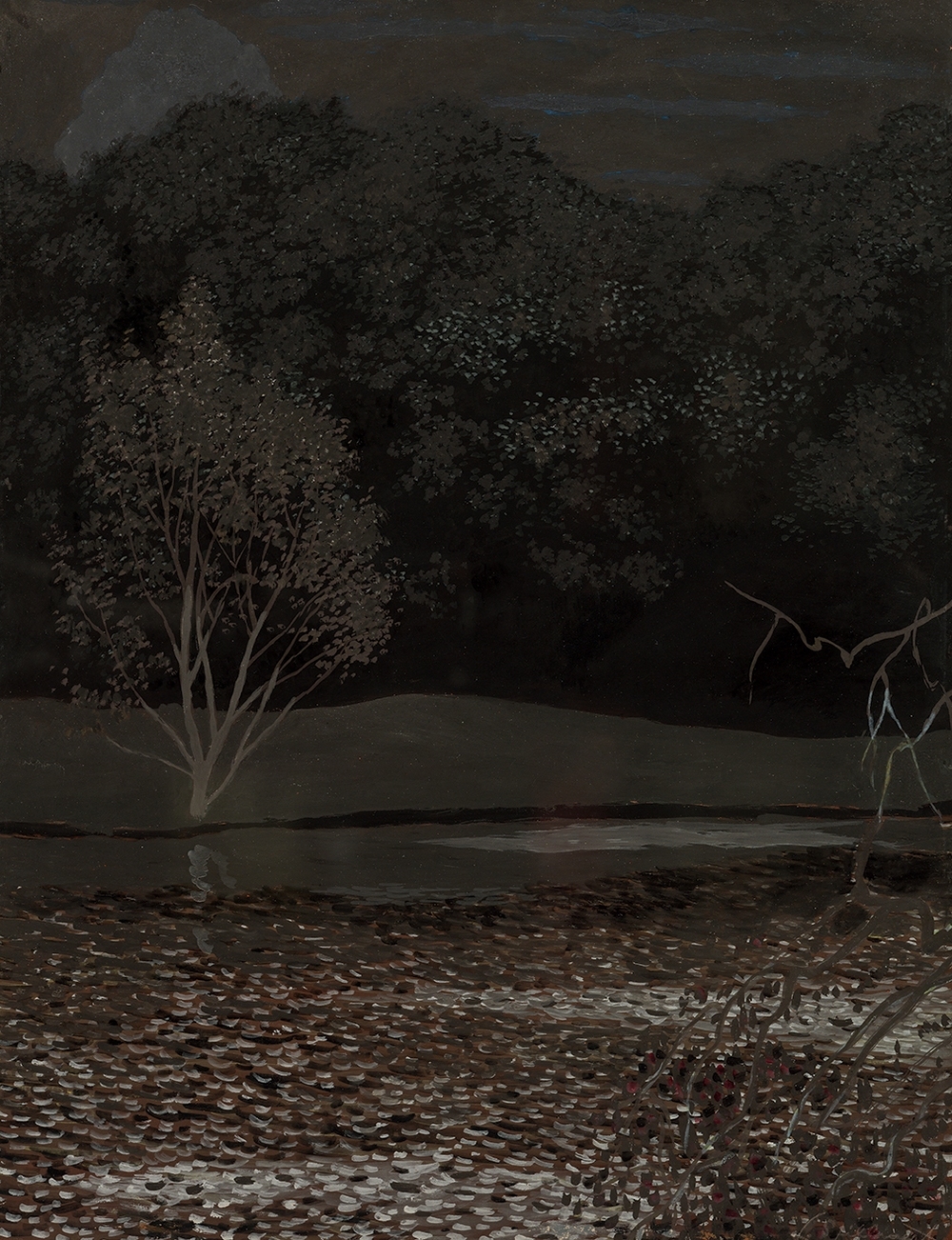Le premier album du chanteur anglais Jamie Woon, « Mirrorwriting », est sorti en 2011 sous le label Cadent song.
Véritable ovni musical, il a connu un succès inattendu, éveillant l’intérêt pour ce jeune virtuose à la voix éthérée.
Il paraît difficile de rattacher cet artiste à un genre, tant il mêle les influences. La presse évoque de la « néo-soul électro » ou du « dubstep » et le situe quelque part entre Brian Eno et Moby.
Cet album, aussi étonnant que réussi, surprend l’oreille. La voix et la mélodie se complètent admirablement et invitent à l’envol. Les « vibes » orientales mystiques qui émergent dans les morceaux Night air, Spiral ou Gravity semblent inspirées des origines familiales à la fois asiatiques et écossaises de l’artiste.
 Paysage nocturne – Léon Spilliaert (1881– 1946), vers 1925, gouache sur papier, 64,5 x 49,5 cm
Paysage nocturne – Léon Spilliaert (1881– 1946), vers 1925, gouache sur papier, 64,5 x 49,5 cm
Night air
Night air has the strangest flavour
Space to breathe it time to savour
All that night air has to lend me
Til the morning make’s me angry
In the night air
I’ve acquired a kind of madness
Daylight fills my heart with sadness
And only silent skies can soothe me
Feel that night air flowing through me
In the night air
I don’t need those car-crash colours
I control the skies above us
Close my eyes to make the night fall
The comfort of a world revolving
I can hear the earth in orbit
In the night air
I’ve acquired a taste for silence
Darkness fills my heart with calmness
And each thought like a thief is driven
To steal the night air from the heavens
In the night air
Jamie Woon & John O’Kane, in Mirrorwriting, Candent Songs, Polydor, 2011.
Texte extrait de la pochette de l’album.